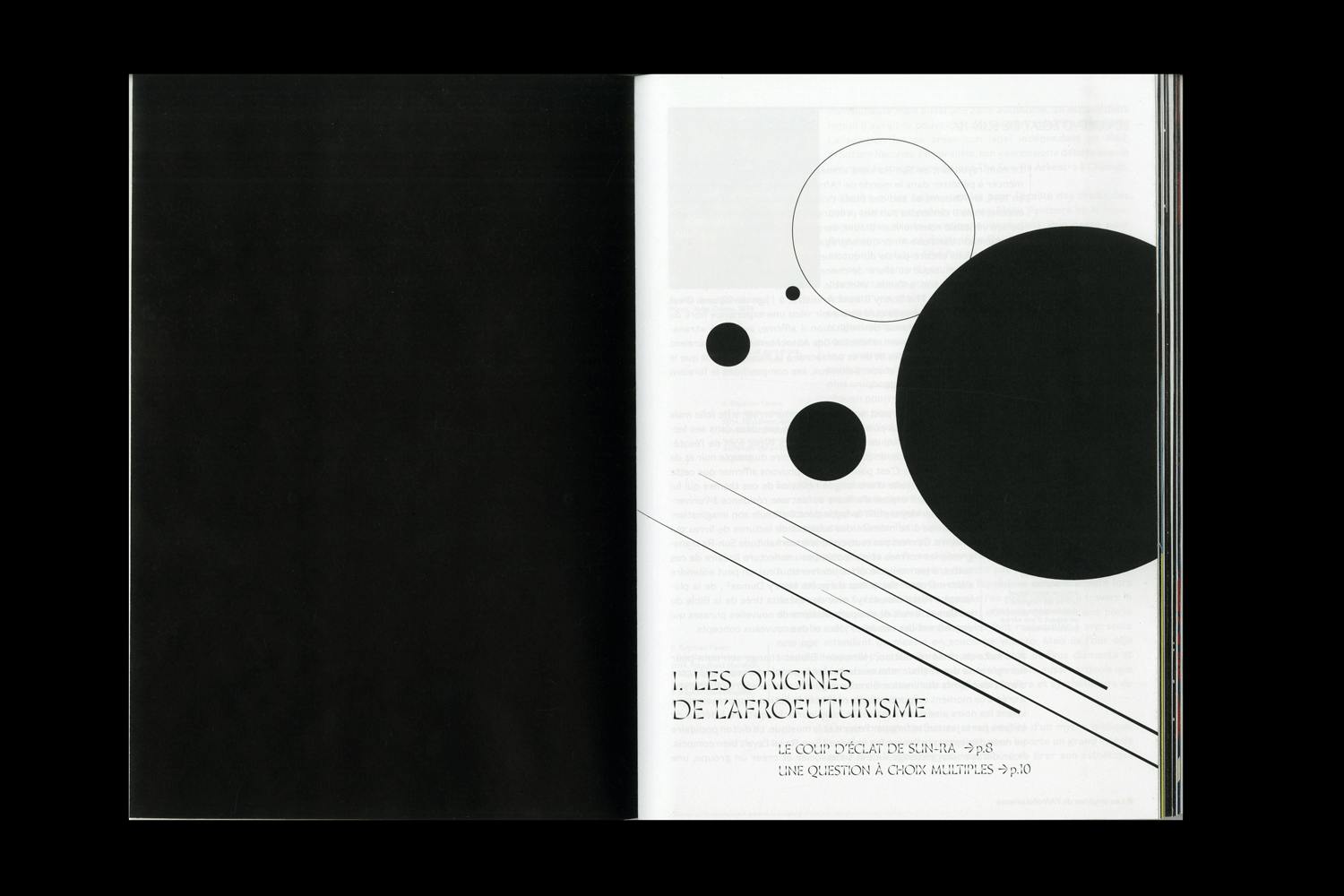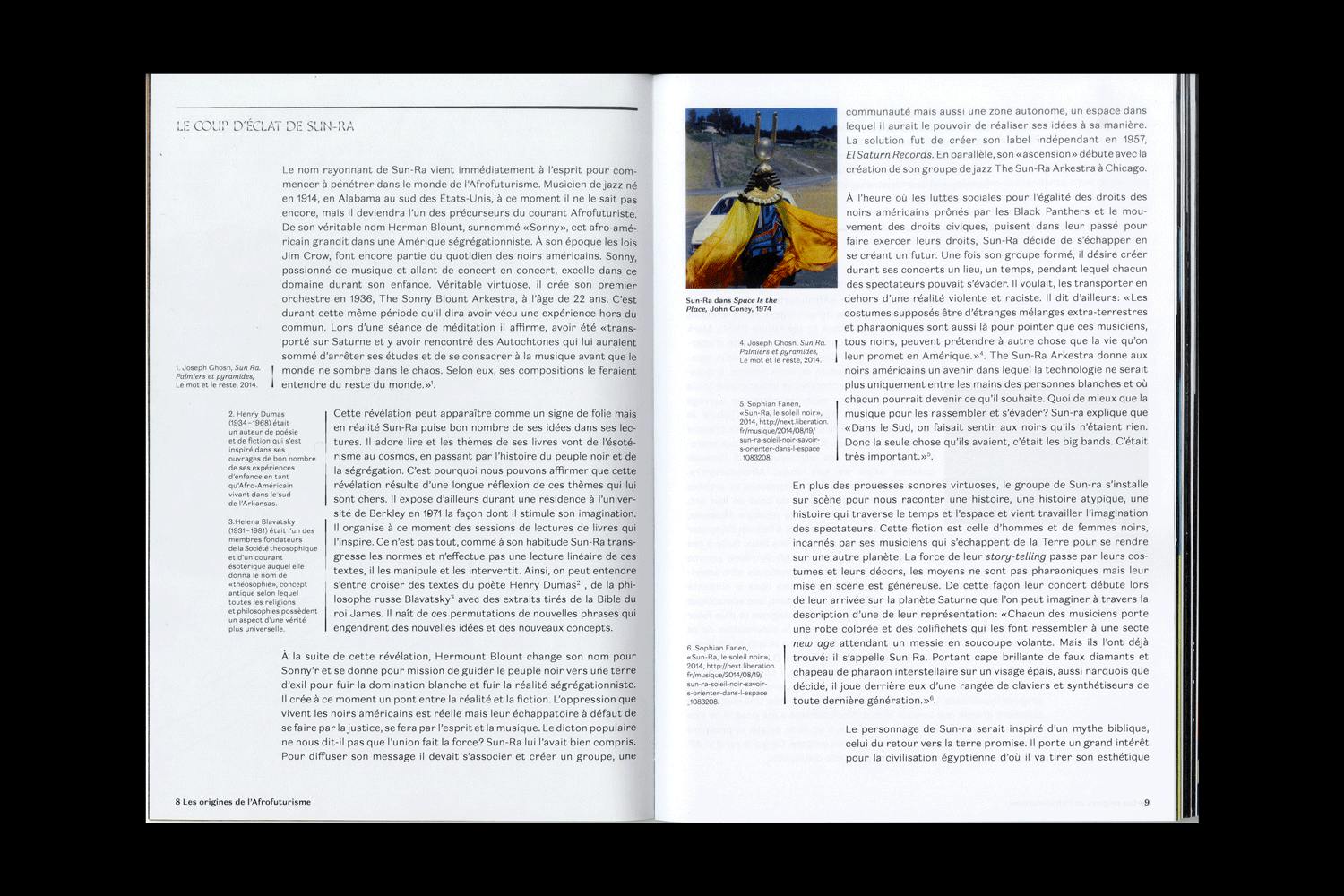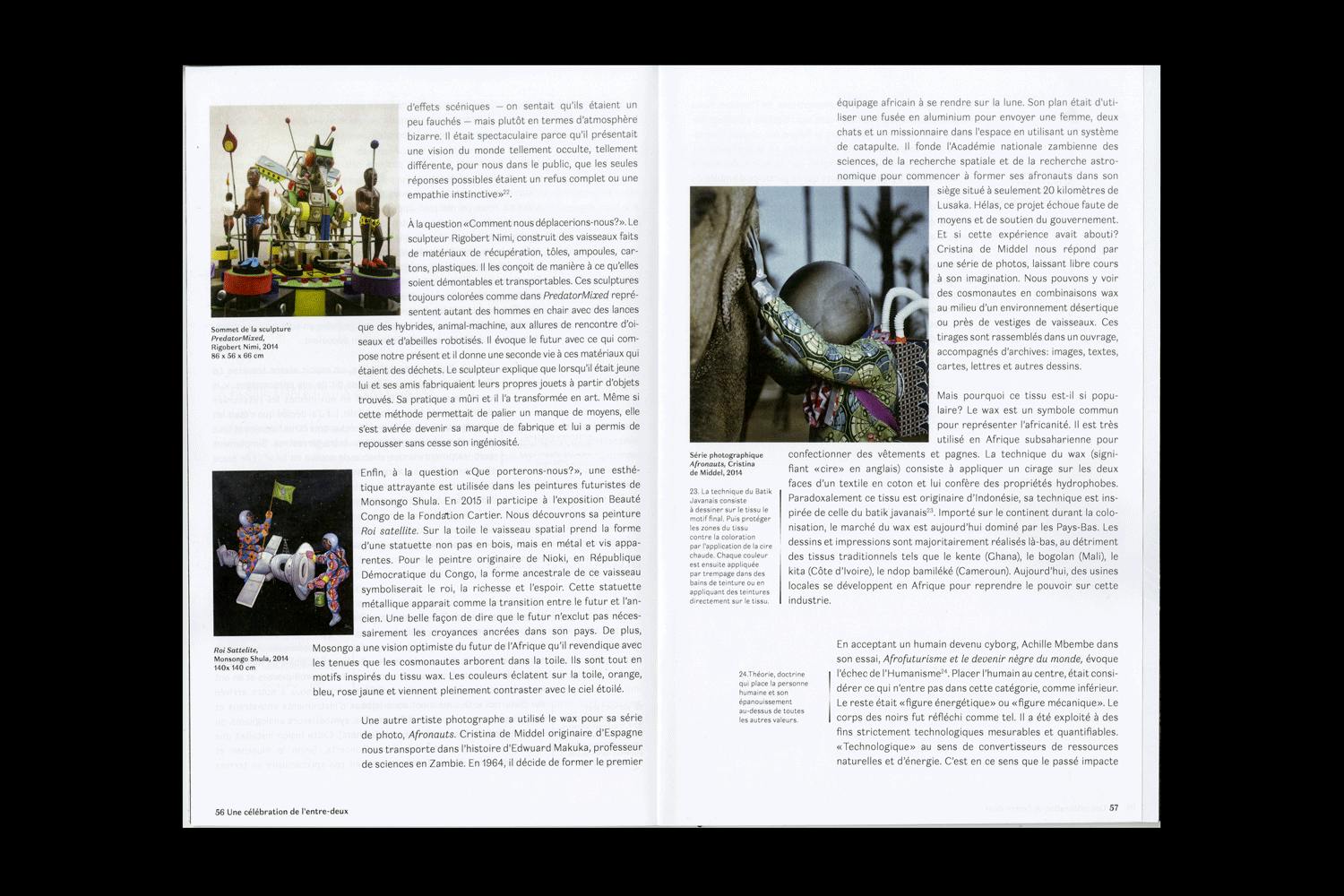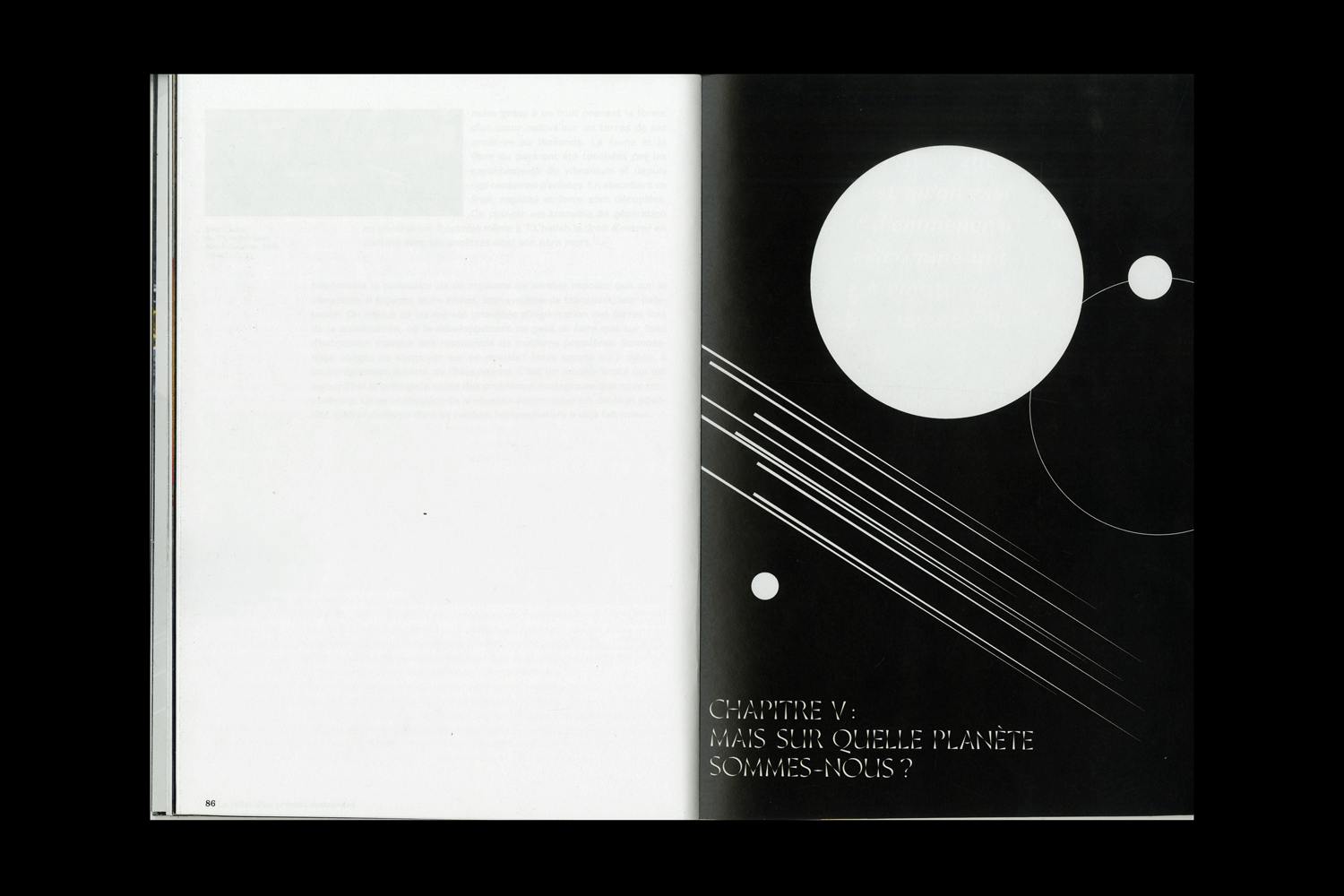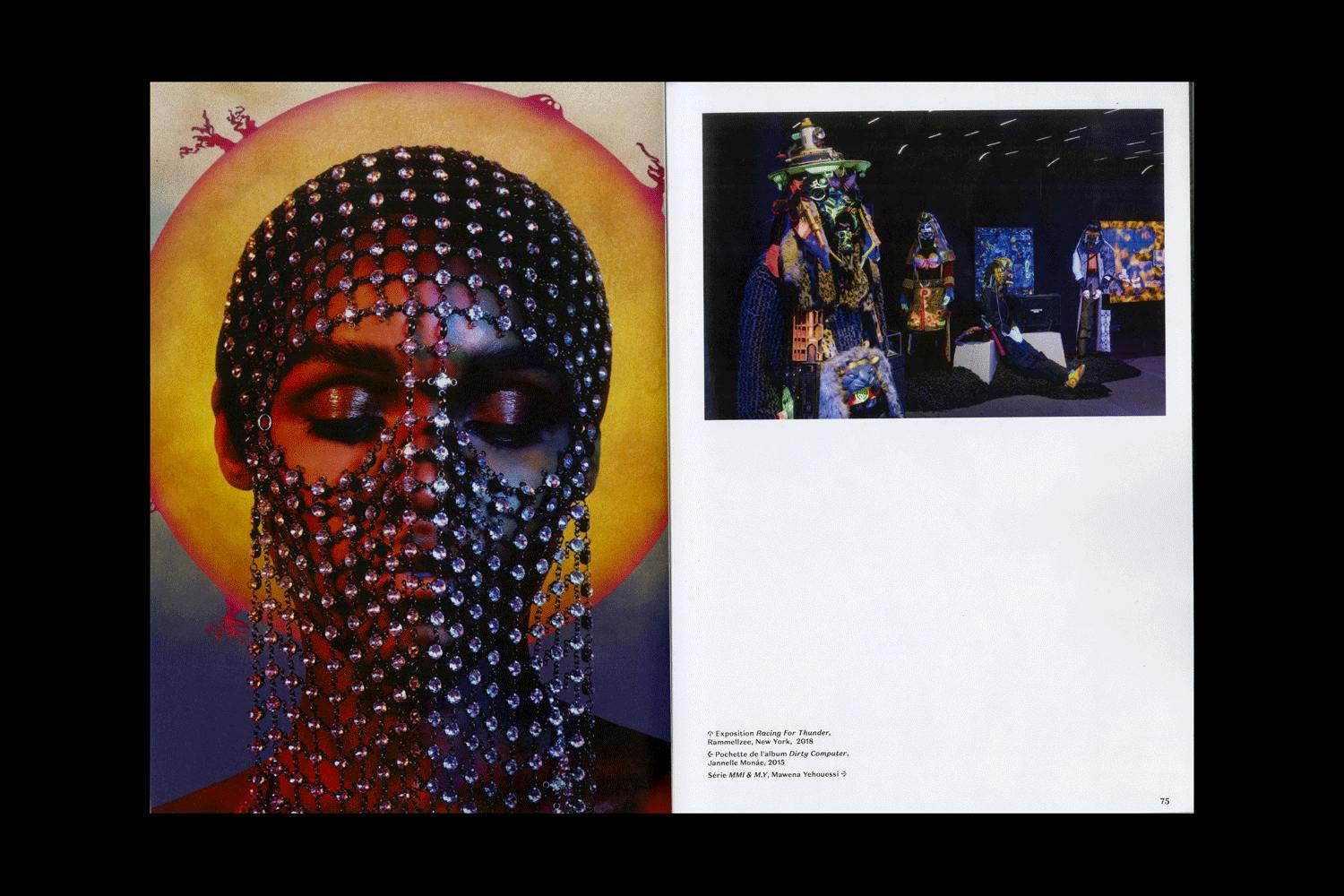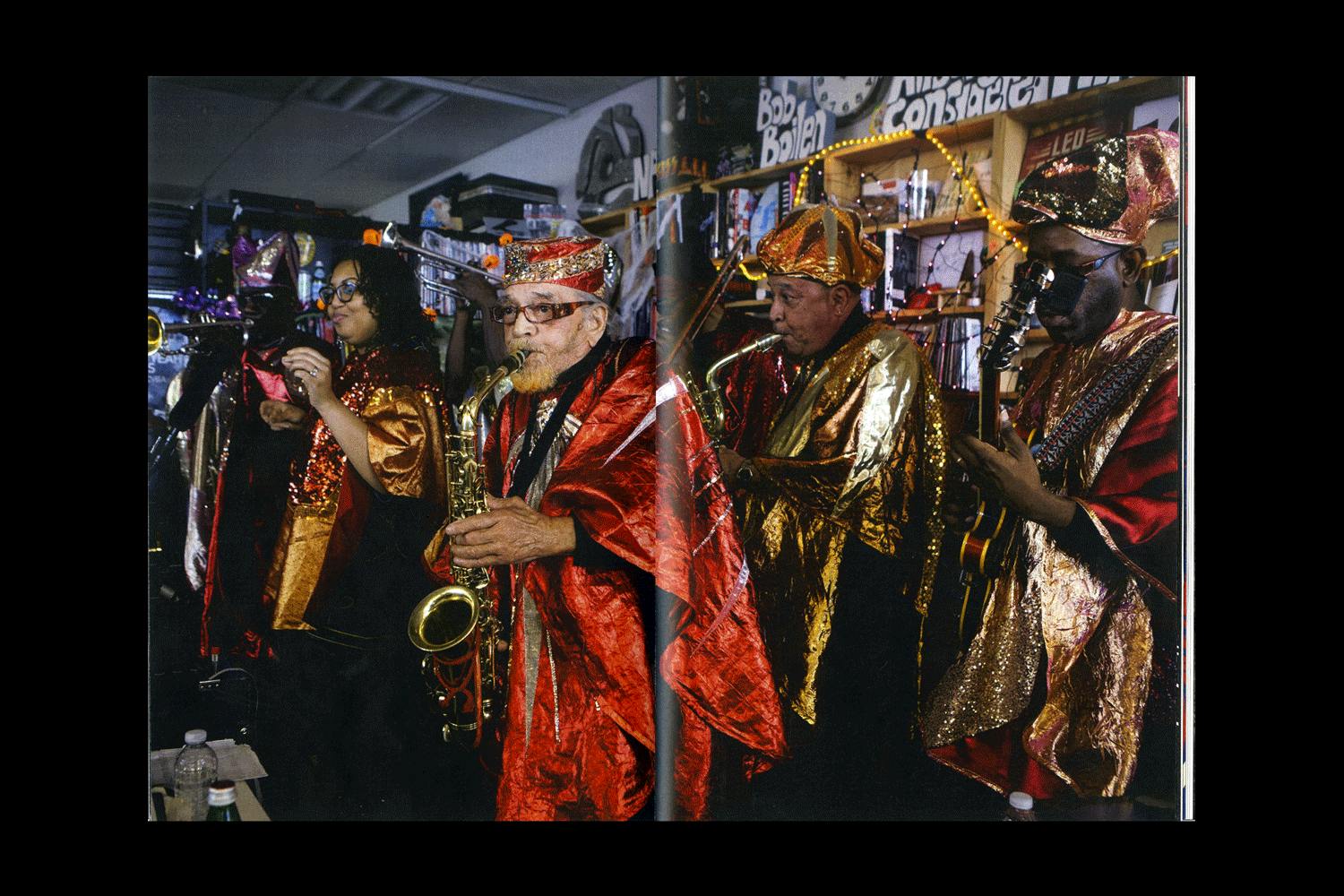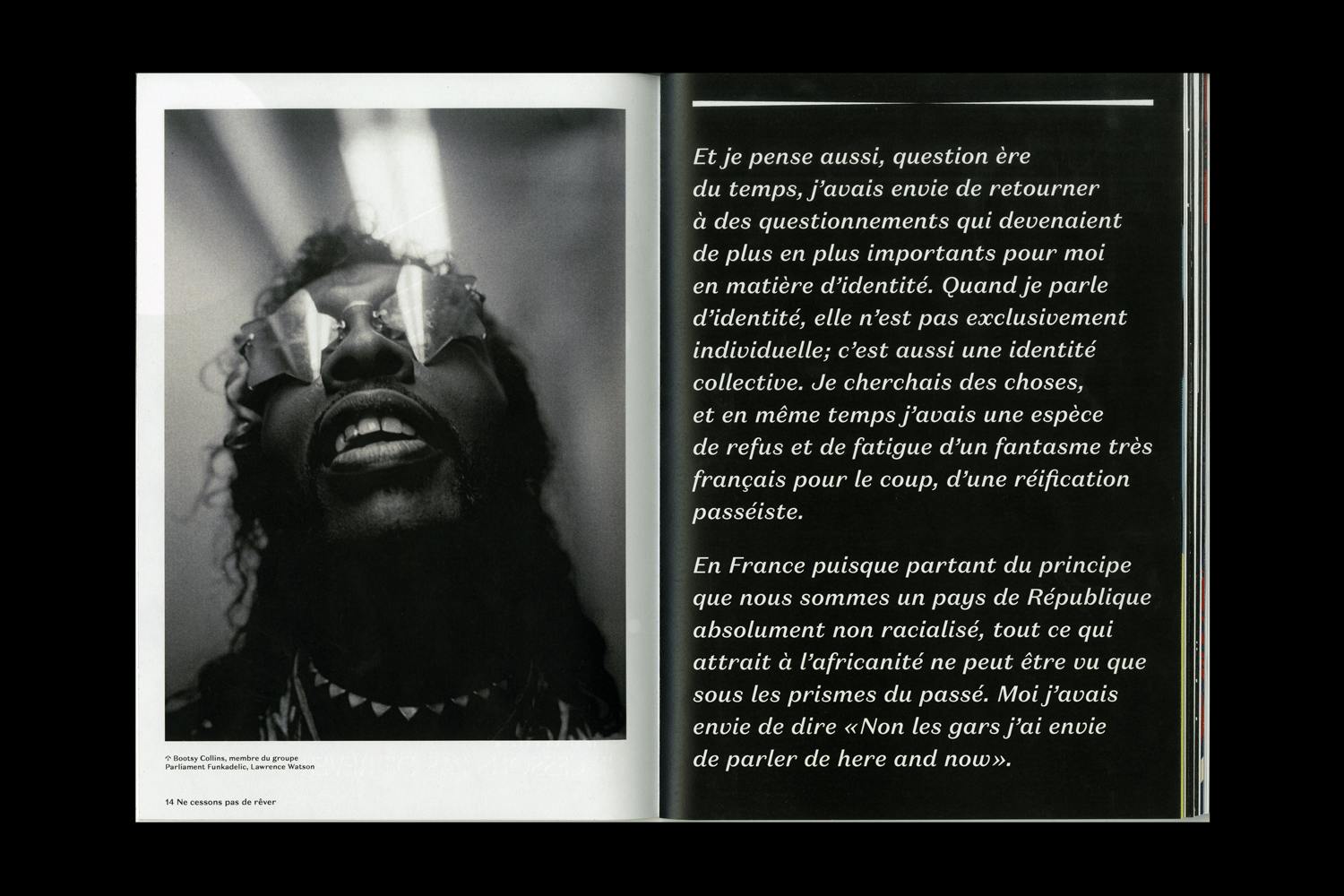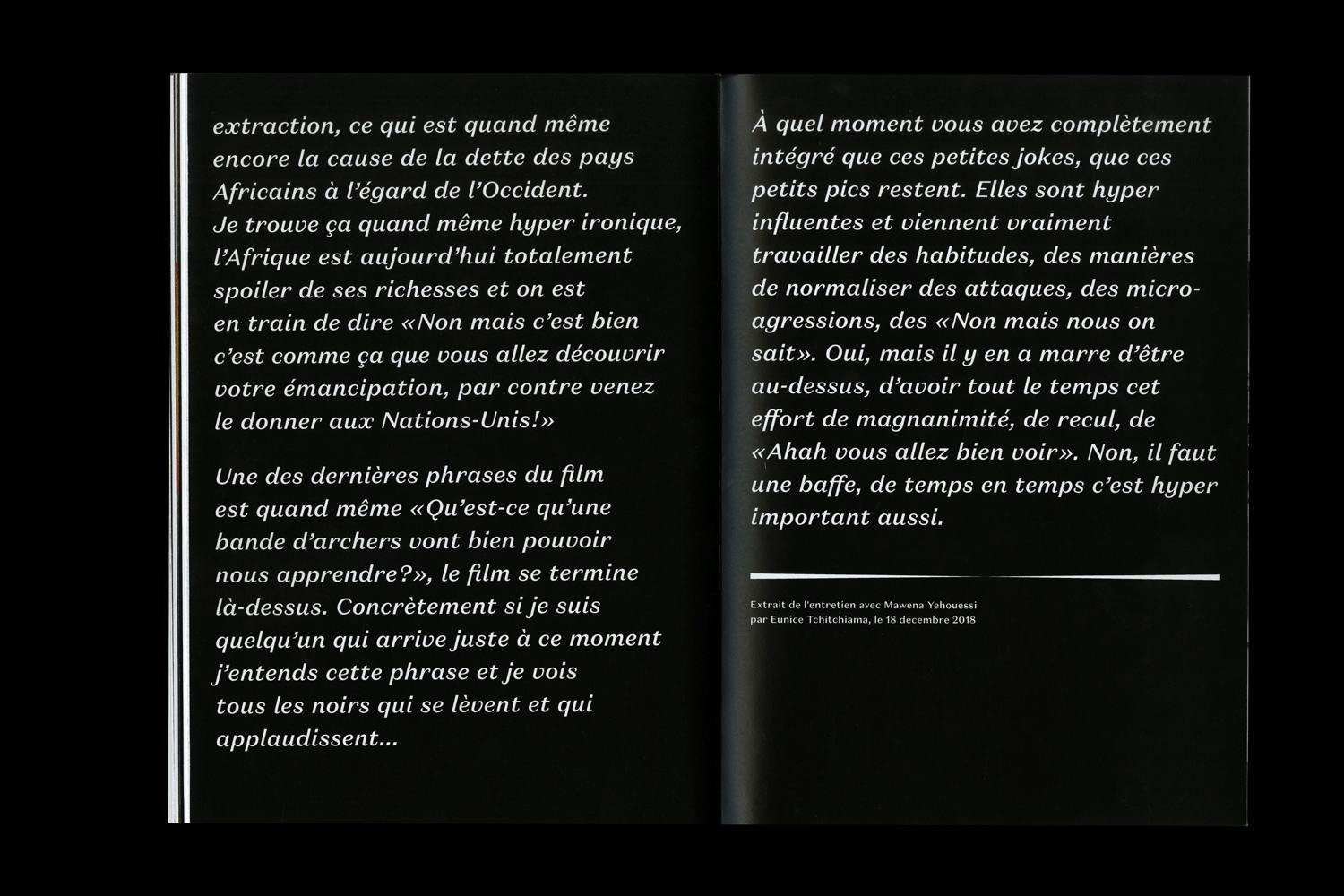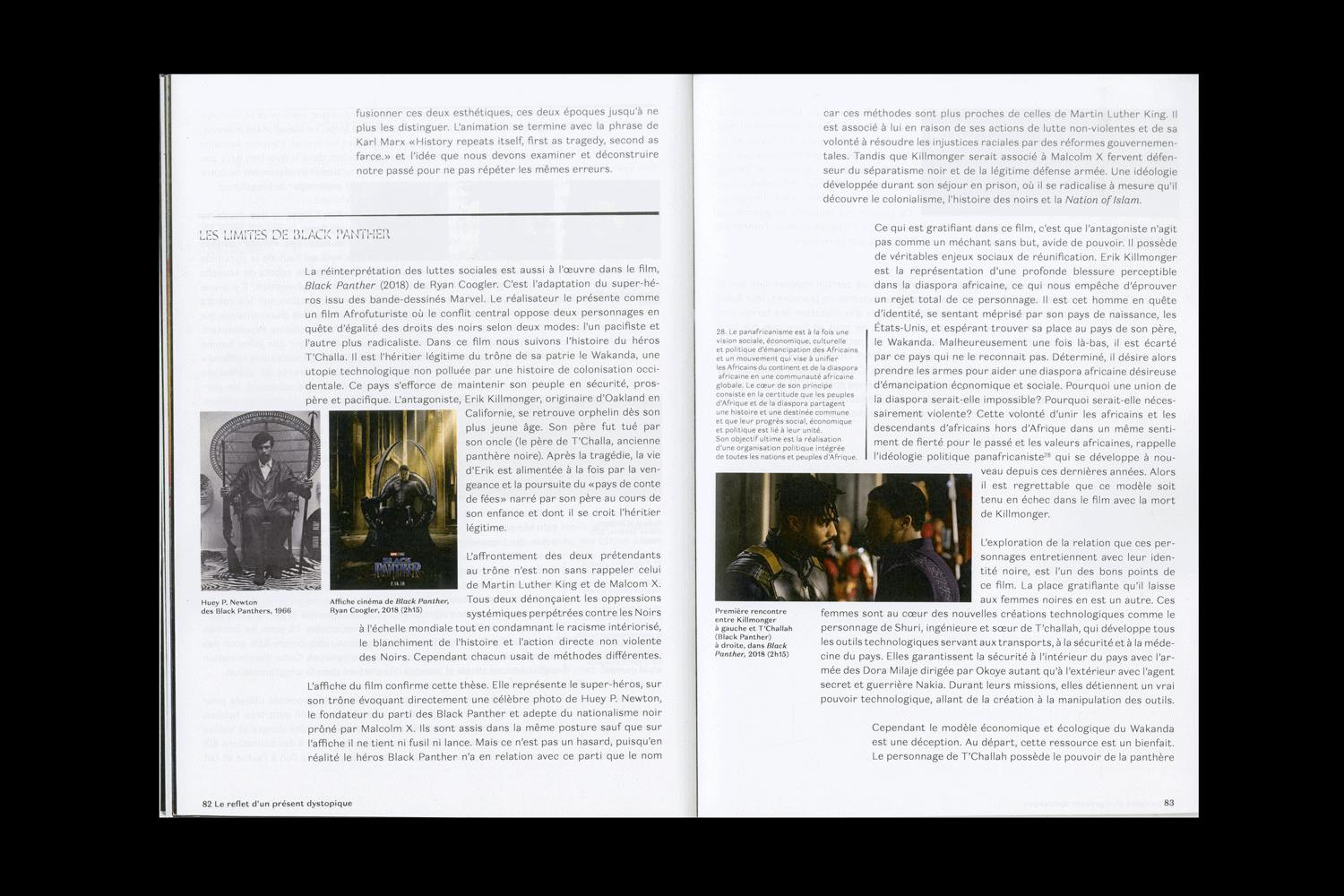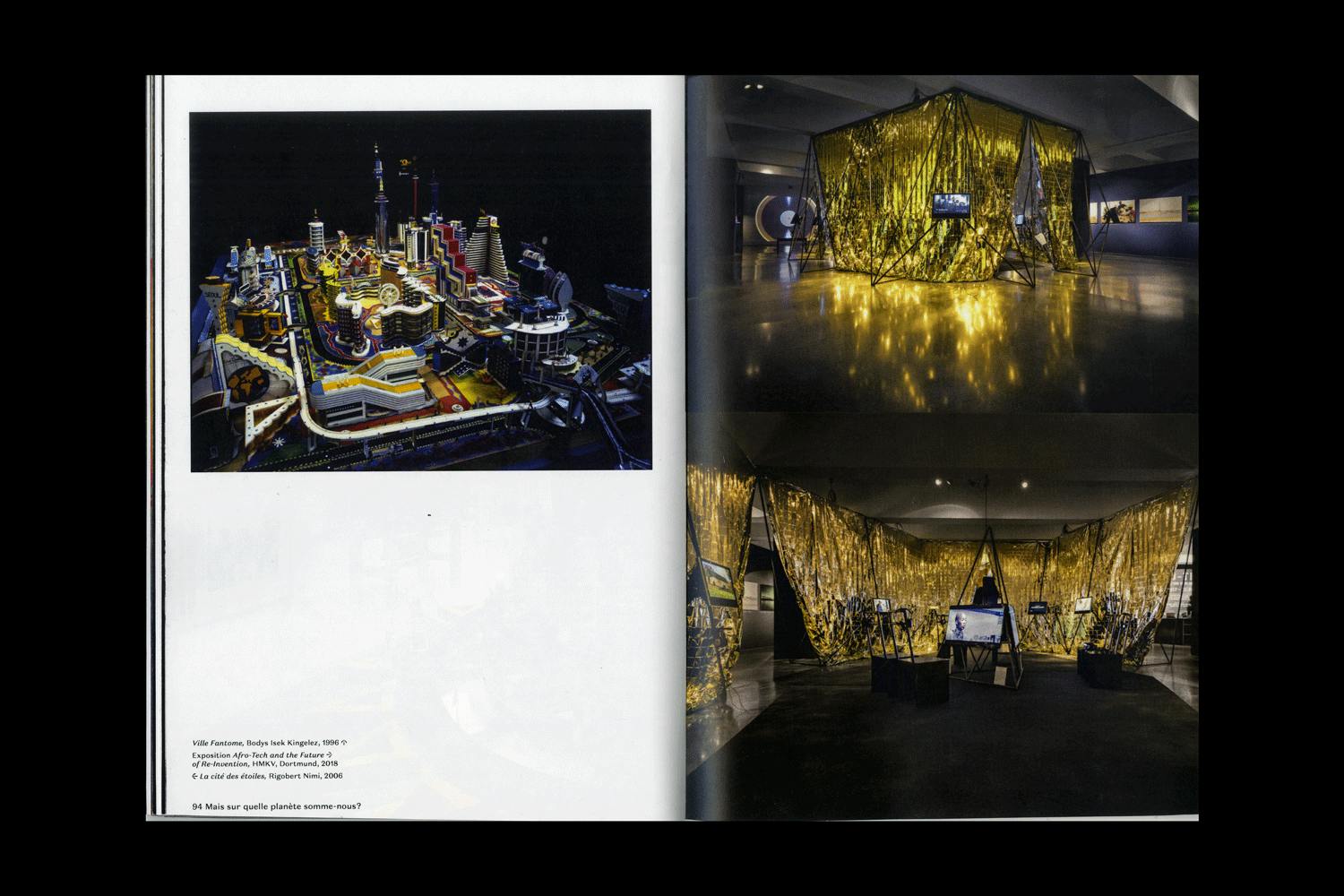À l’heure des grandes avancées technologiques, notre monde est en pleine mutation. Des smartphones aux réseaux sociaux, de la voiture autonome à l’intelligence artificielle, ces transformations impactent profondément nos interactions sociales, nos déplacements, nos identités. Il y a vingt ans nous ne pouvions imaginer voir un jour une voiture se déplacer seule, mis à part dans un film ou un livre. L’univers de la science-fiction a joué un rôle important dans les progrès technologiques car une grande part de ces innovations s’en est inspirée. Des personnes nous ont donné à voir et penser le monde de demain à travers des films, des séries, des livres. Cependant, les fictions les plus reconnues ont été construites majoritairement d’un point de vue occidental et laissent peu de place dans leurs espaces futuristes aux africains, caribéens, femmes et hommes noirs racisés. Face à cet effacement, un courant alternatif s’est développé : l’Afrofuturisme. Ce mémoire tente donc de dégager les enjeux sociaux transversaux dans l’Afrofuturisme, en explorant ses thématiques récurrentes, et en se fondant sur les travaux d’artistes et intellectuels, se revendiquant Afrofuturistes ou dont la pensé peut être inscrite dans une filiation Afrofuturiste.
L'Afrofuturisme : La célébration culturelle du multiple
Édition, 2019
At a time of great technological advances, our world is changing. From smartphones to social networks, from autonomous cars to artificial intelligence, these transformations deeply impact our social interactions, our movements and our identities. Twenty years ago, we would not have imagined one day seeing a car move alone, except in a movie or a book. The world of science fiction has played an important role in technological progress because much of this innovation has been inspired by it. People made us see and think the world of tomorrow through movies, series, books. However, the most famous fiction has been built mostly from a Western point of view and leave little space in their futuristic spaces to African, Caribbean, racialized black women and men. Faced with this erasure, an alternating current has developed: Afrofuturism. This dissertation attempts to identify transversal social issues in Afrofuturism, by exploring its recurring themes, and by relying on the work of artists and intellectuals, claiming to be Afrofuturists or whose ideas can be included in Afrofuturist filiation.

